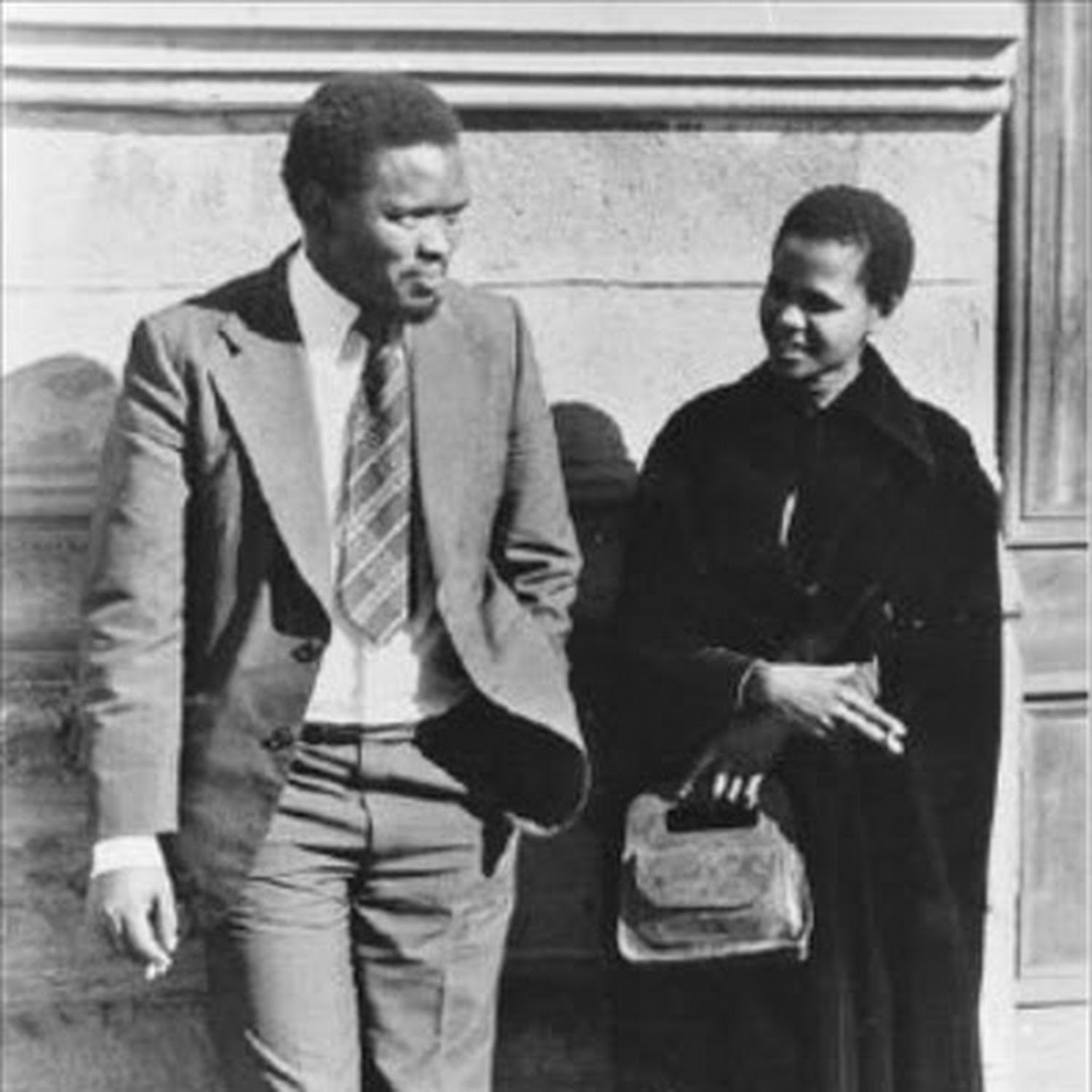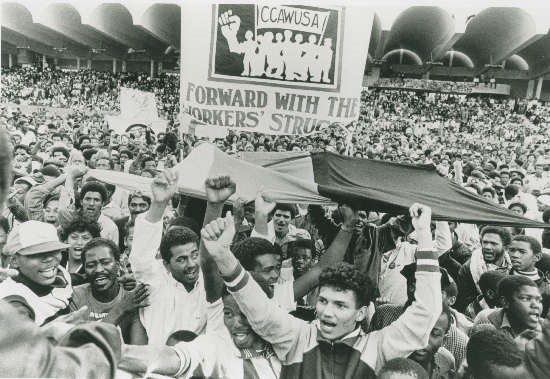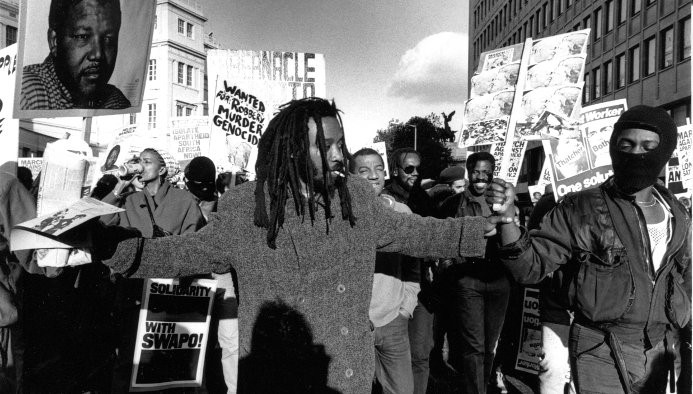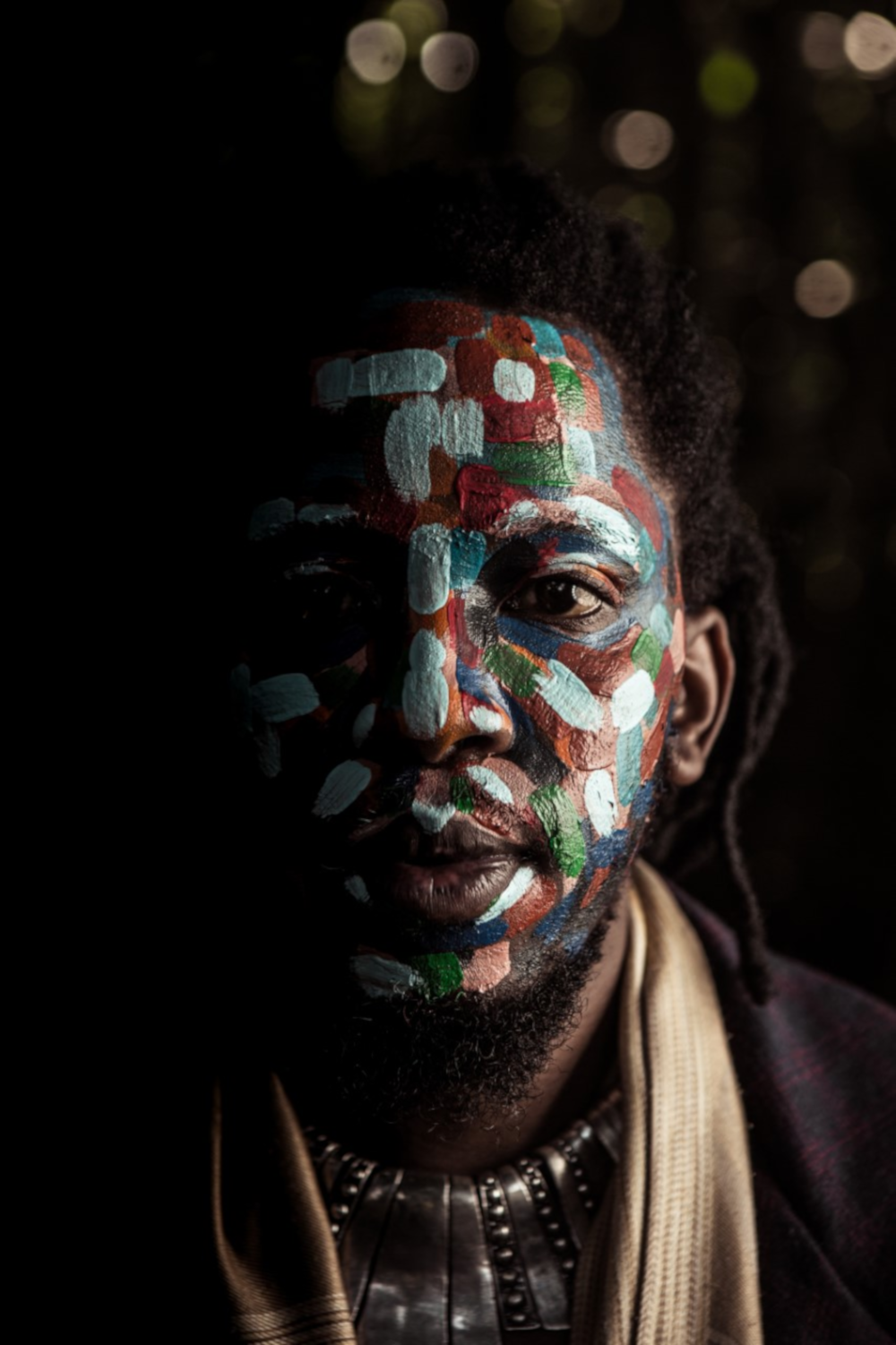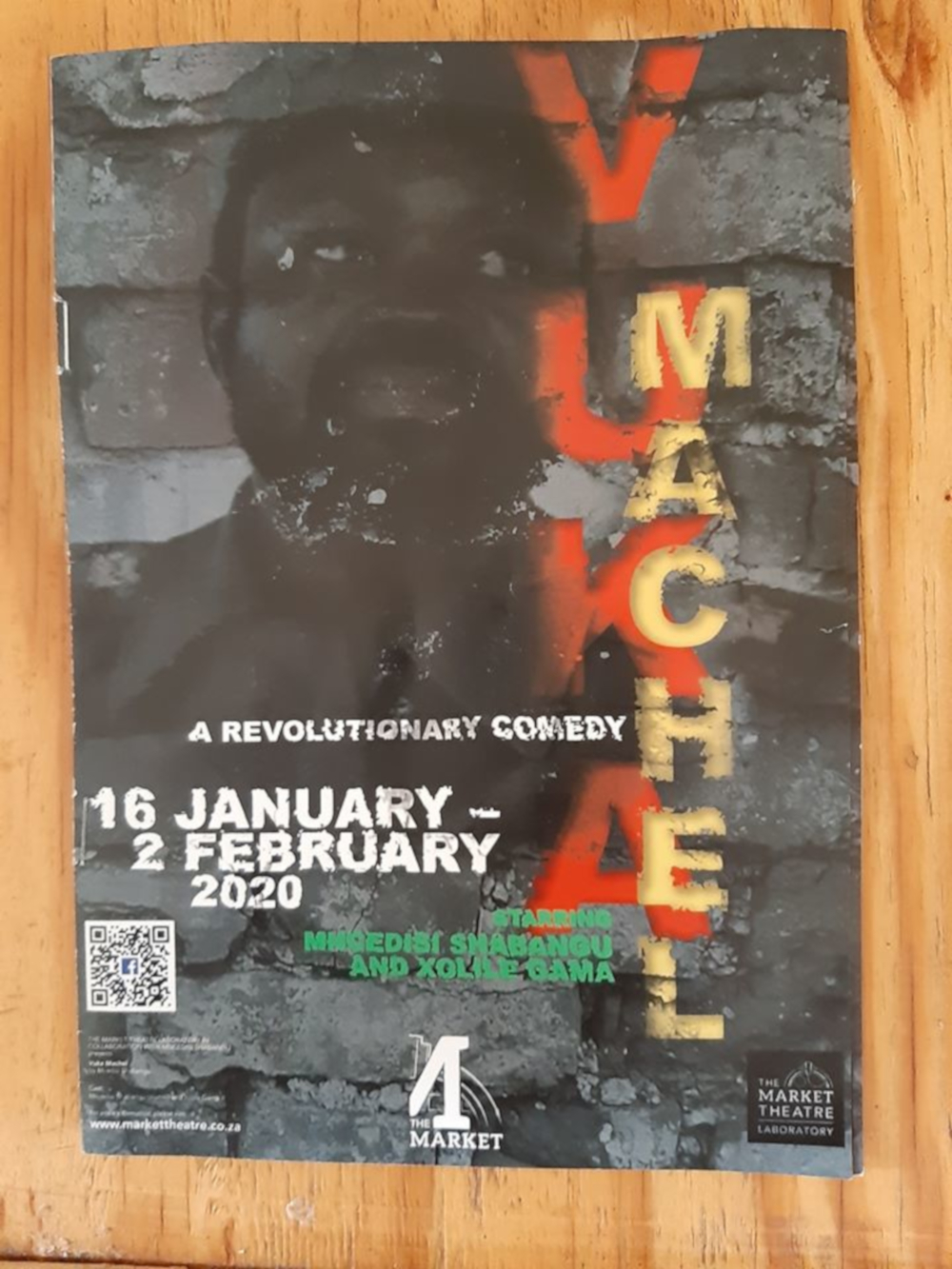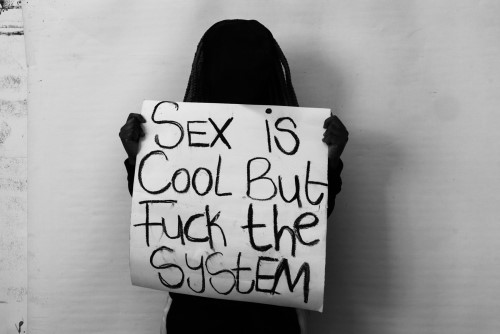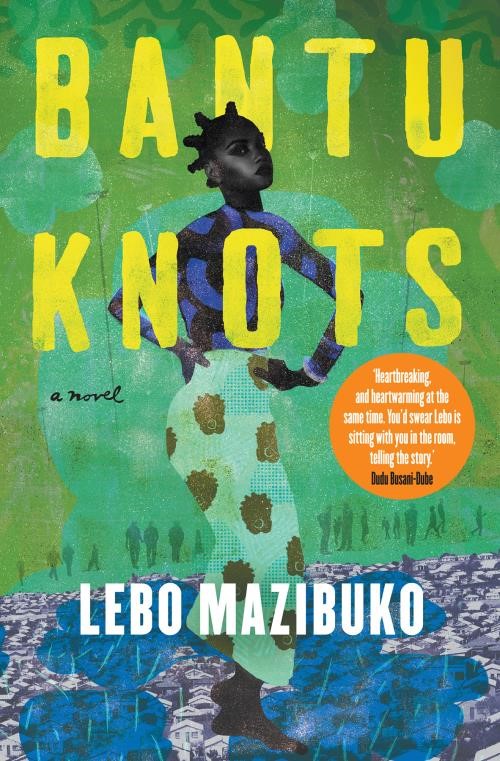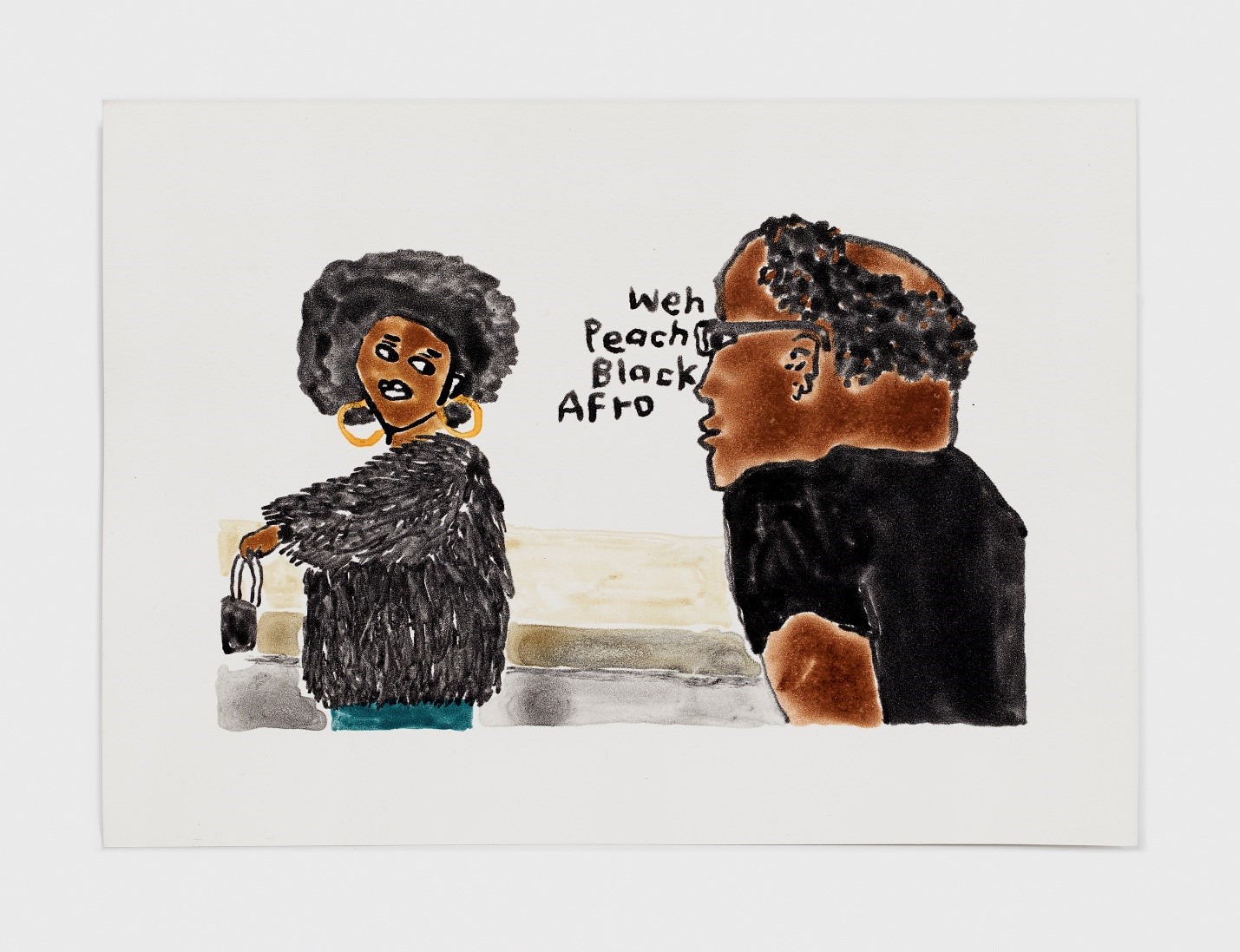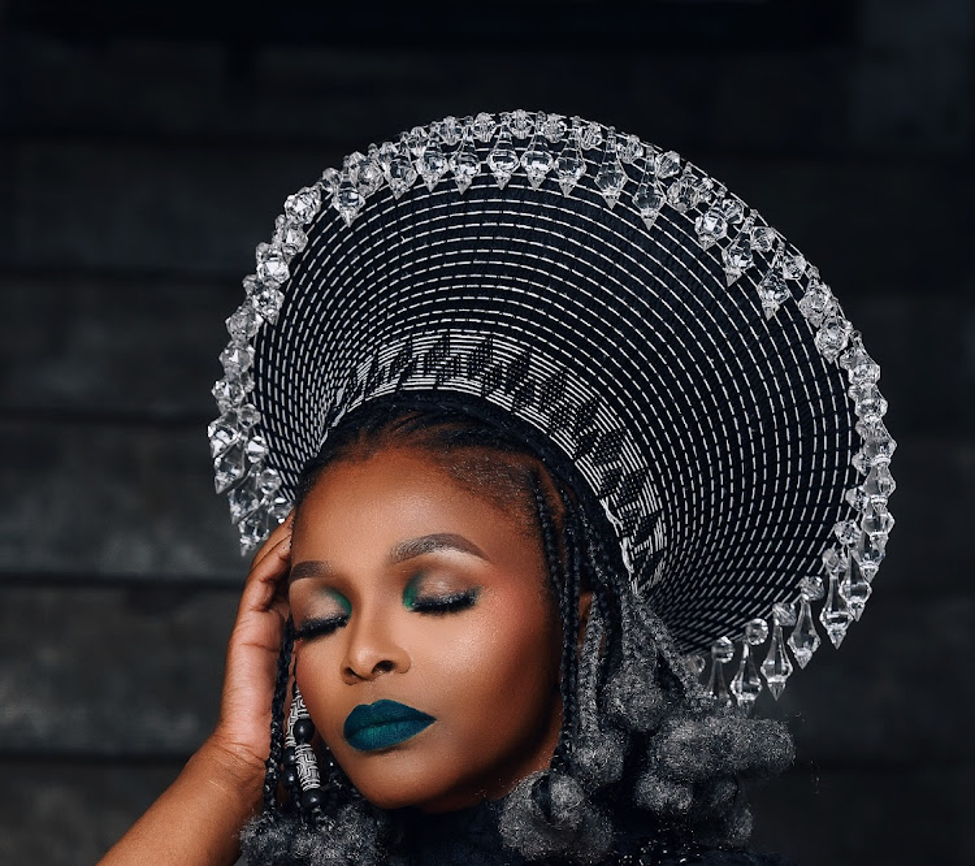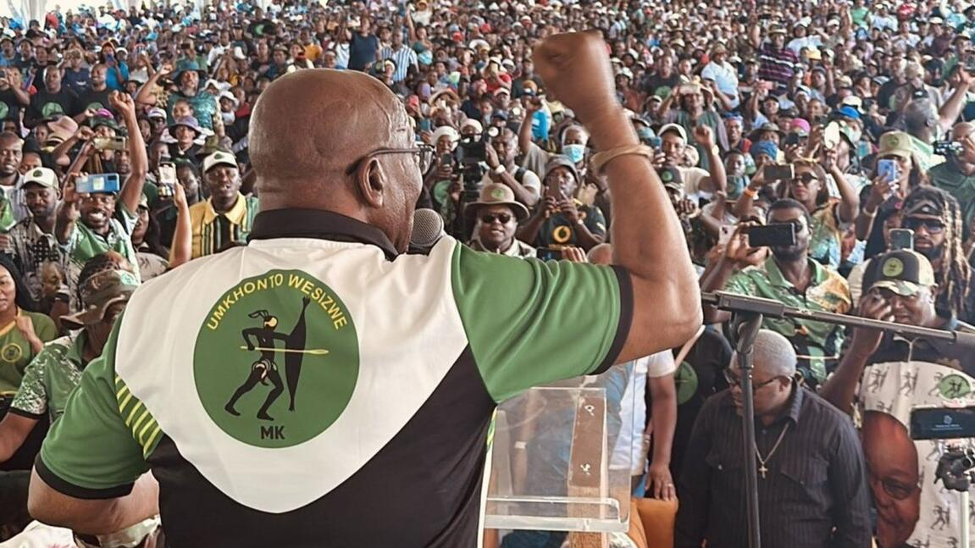Introduction: Locating Black Consciousness within Existential Phenomenology
It is appropriate that this Steve Biko Memorial Lecture is held in Zamdela, which, alongside places like New Brighton, Kwazakhele, Soweto, Sobantu, Hammarsdale, Inchanga, Bekkersdal, Mahwelereng, and Maokeng, is one of the townships whose children have sacrificed, lived, and died to raise the torch of Black Consciousness in Azania. I therefore propose that before we proceed with the lecture, we take a moment of silence to remember these comrades. As we pay homage to the son of Man, The Prophet of Black liberation, Bantu Stephen Biko, I would like to request that we take a moment of silence to remember, salute and pay tribute to the fallen activists of the Black Consciousness Movement (BCM) who raised the flag of Black Consciousness in Zamdela:
Mahlomola Maitse
Congo Tshabalala
Vader Tshabalala
Kgomo Maluleke
Buti Maluleleke
Moshanyana Shakes Maluleke
James Hlongwane
Monweni Hlongwane
Mokone City Mokoena
Stefan Mokoena
Mphala Mokoena
Charles Sphethe Monyake
Magaula Monyake
Bafana Radebe
Jabulani Radebe
Lassy Radebe
Mbambeleli Phillip Flepi Radebe
Chris Radebe
Lazarus Mphuthi
Steve Stefane Lehoko
Motolo Dallas Mtholo
Mokgethi Mtholo
Maimane Sibaya
Ben Sibaya
Baba Sibaya
Brenda Mguni
Nkosana Scotch Mguni
Seonya Maine
Aupa Cheese Ramodiki
Jake Pasha
Mojalefa Mahlatsi
Sello Thejane
Meisie Rampa
Bafana Khambule
Fezile Fana Matiwane
Sonti Matiwane
Kgolo Matiwane
Mojalefa Mokhampane
Mongalo Nthebe
Derrick Nare
Sechaba Mohlakane
Makoena Mohlakane
Mpe Ntene
Lesia Tsoman Pitso
Masai Mabitsela
Mokete Johannes Yahya Phole Matebesi
Tefo Kheswa
Joyce Tete
Mohlaole Kgeps Jaqile
Donny Magwa
Sello Thejane
Ntsane Potsane
Lucky Mokau
Sello Manenzhe
Dibuda Mafisa
Thami Mbeleni
Solly Mohapi
Shuffle Letshela
I found it fitting to name this memorial lecture “Biko as an Africana Philosopher and Black Consciousness as an Existential Phenomenological Approach to the past, present and future of the Azanian people”. There is no way the people of South Africa can move and advance to a better future when they have amnesia about their past, a hazy view of the present and an unclear perception of the one philosophy that is rooted in their historical and material realities and in their socioeconomic, political, and cultural experiences, namely, Black Consciousness. In our view, real socioeconomic and political emancipation will be attained through decolonization, democratization of the polity and the economy, the nationalization and socialization of the land and natural resources, and the de-commodification of essential social services like education, healthcare, water, and electricity. Outlining a proper conceptual, theoretic, and practical framework to pursue the social and economic policy path implied in this description of true national and social liberation is not an easy matter. Perhaps the best place to begin is the definition of key concepts or words because words spring from the world of realities and experiences as much as words work to define or redefine the world of reality and the world of experience. We have reason to believe that the lived experiences, existential realities, and socio-political history of most people at this gathering are such that there is no need to spend too much time on explaining Black Consciousness (BC). Suffice to say that Black Consciousness is a philosophic, ideological, political, and cultural response to the economic, socio-political, and cultural experience of living in world in which the power and social structures of imperialism, colonial and racial capitalism establishes and reinforces attitudes and practices that belittle Black people, and everything associated with their history, knowledge, systems, and cultures as barbaric, uncivilized, uncultured, and objectionable. Effectively, Black Consciousness (BC) seeks to build a counterculture and counter-hegemony to all power and social structures that construct and entrench the ontological death and socio-political, economic, and cultural subjugation of Black people.
Black Consciousness pays special attention to how the ontological death and subjugation of Black people is pursued through the objectification of Black bodies into a problem, danger or peril to justify physical, psychological, and socioeconomic violence against Black people. In other words, Black Consciousness advocates and fight for the right of Black people to exist in the world as a complete, and free human beings, and for the world in which racialised identities are not the measure of people’s humanity. In our country, Black Consciousness highlights and locates the Marxian concerns about the power and social relations around control and ownership of wealth and concerns about exploitation, alienation, reification, atomisation, and deactivation, to the realities of the intersection between colonialism, racism, capitalism, and patriarchy. Accordingly, BC locates the philosophical, ideological, political, intellectual, and ethical concerns raised by existential phenomenology about human identity, consciousness, being and belonging, and language and power to the experiences of being Black in the world and to the realities of the legacies and continuities of settler-colonialism and racial-capitalism. Clearly, the key concepts, issues and concerns entailed in BC are not peculiar to the Black experience in South Africa and Africa. They resonate with the reality of being Black in the world and with the experiences of Black people in Africa, Europe, North America, South America, Asia, and Australia. This locates Black Consciousness within the framework Africana Philosophy. Briefly, Africana philosophy refers to a broad or wide body of intellectual, political, and philosophical traditions emanating out of the Black world and emerging out of Critical Black Thought in response to the reality of being Black in the world.
Some of the notable inputs to Critical Black Thought or Africana philosophy include:
-Martin Delaney’s notion of struggle against White Paternalism.
- Frederick Douglas notion that Freedom is always taken and is never given
- WEB Du Bois ideas on twoness and double consciousness, his assertion that the black issue is a philosophical problem of being regarded and portrayed as a problem instead of being seen as victims of anti-black white supremacism, and his "philosophy of the soul" or an affirmative cultural nationalist position on the raciality of Black which advocate that people of African descent should appropriate a racial identity that is based on a shared history and culture, invest in their historical legacies, cultural creativity, and establish organizations and institutions in which the life-worlds of Black people are forged, sustained, and shared.
- Anna Julia Coopers’ black existential feminist ideas on self-worth and agency, which challenges racist claims of black worthlessness and sexist claims of woman worthlessness by arguing that the measure of worth should be the difference between contribution and investment.
- The Africanist views of Marcus Garvey (1887 -1940) and the Pan Africanism of George Padmore (1903- 1959), Kwame Nkrumah (1909 -1972), Robert Sobukwe (1924 – 1978), which advocate for African unity and solidarity and the paramountcy of the spiritual and material interests of African people in Africa and the world.
- The Harlem Renaissance –Protest literature against White Euro-American racism (Alaine Locke (1886- 1945)
- The Negritude of Aime Cessaire, Jane Nardal, Paulette Nardal, Leopold Senghor, and Albert Camus, which promoted Black Pride and Self-Affirmation.
- The African Humanism of Cheich Anta Diop, Julius Nyerere (1922- 1999), Kenneth Kaunda (1924), and Eskia Mphahlele, which highlights the achievements of ancient africa, defends the humanity of Africans, asserts the creative potential of black consciousness, places the human being above economic and materialistic interests in its rejection of exploitation, its emphasis on charity and equality and its call for spiritual management of politics.
-The Black Nationalism of Malcolm X, Mittie Maude, Lena Gordon and Celia Jane, which asserts the social identity of Black people based on shared historical and material struggles and realities
- The Black Power Movement of Kwame Ture, Mukasa Dada, Angela Davis, Assata Shakur, Tarika Matilaba, and George Jackson, which stands for black self-defence and self-sufficiency
- The Black Theology of James Cone, Robert Beckford, Basil Moore, Sabelo Ntwasa, Takatso Mofokeng and Itumeleng Mosala, which reads the word of God within the existential situation of oppressed people, asserts the gospel of Christ as the gospel of liberation and justice here and now to liberate black people from political, social, economic and religious subjugation.
- The Africana Critical Theory or Black existentialist philosophy of William R Jones, Lewis Gordon , Nelson Maldonado Torres, and Reiland Rabaka, which refers to an existential philosophy by black philosophers that seek to address the intersection of problems of existence in the Black world with the aim of the empowerment and liberation of Black people in the world from domination by White supremacism.
- Afro-pessimism of Patrice Douglas, Saidiya Hartman, and Frank B Wilderson, which is critical framework that examine and expose the devastating effects of racism, colonialism, enslavement on the personal, subjective, and lived experience and embodied realities of African people
- The Afrocentricity of Ama Mazma, Molifi Kente Asante, Moulana Karenga, and Veli Mbhele – which focuses on self-determination, African agency, and centering and re-centering the narratives of African people in Africa and the diaspora as the starting praxis to gaining equal representation in history, and in the knowledge-making process. (Belaineh, 2016).
- The Afrikology of Kgalushi Drake Koka, Dani Wadada Nabudere, Ya Ashantewa Ngidi, Mathole Matshega and Menzi Maseko, which advocates for the study of Africa in its totality, tapping into African cosmologies.
Steve Biko was an Africana philosopher not only because he tapped into different intellectual, philosophical, and ideological traditions and movements that grappled with the reality of being Black in the world. He went beyond this to combine theory and practice and fuse philosophy and activism in his critical reflections and robust work on the being, consciousness, agency, self-worth, self-realization, self-reliance, and self-determination of Black people. He went beyond Fanon’s emphasis of mental oppression as the most potent weapon in the hands of the oppressor to highlight fear as an equally potent weapon in the hands of the oppressor. Therefore, one of the pivotal inputs of Biko to Africana philosophy is that by words and deeds he illustrated the importance of conquering fear as a requisite for ending the emasculation and ontological death of Black people. While Fanon stressed revolutionary violence as human being reclaiming and remaking the self, Biko accentuated the killing of fear or fearlessness in the face of repression as the resurrection of the oppressed from their ontological death. The other important contribution is that Biko and his peers recognized the importance of analysing and exposing how different forms of oppression reinforce one another. Recognizing that their experience of alienation in Eurocentric higher education institutions that disregarded their Black experience was linked to the community struggles and workers struggles, the theorists and activists of the South African Students Association (SASO) tested and translated their theories in social practice through engagement in community out-reach, organizing and development programmes. They facilitated the establishment of organizations for all sectors of the Black Community and integrated popular education, civic education, or political literacy, political conscientization, political education, popular education, particularly Paulo Freire’s Pedagogy of the oppressed and literary, visual, and performed arts in their political programme. In this way, SASO created platforms that link all sites and forms of struggle and activism and that build the power and voice of people beyond the mechanics of the state and the corporates. As such, Biko and his comrades dabbled in movement-building, multi-issue organizing, intersectionality, borderless pedagogy and building power-from-below long before these became buzz words. Importantly, while willing to utilise the usable and appropriate elements of intellectual, political, and philosophical traditions emerging outside of the Black world, Biko and Black Consciousness theorists like Chabani Mangayi, Mabogo More, and Mandla Seleoane avoid a carbon copy of these in favour of submitting these traditions to the realities of Azania and appropriating their relevant aspects to the Black experience or rather to the reality of being Black in the world. Consequently, Black Consciousness theorists appropriate Martin Heidegger’s notion of Ontology as the study of being, particularly human consciousness, for which Being is first and foremost the conditions of its own being, to emphasize the need for Black people to define their own humanity in their own terms and to interrogate and challenge the language and traditions that seek to project the black body as a horrible or exotic spectacle to deny Black people interiority, thereby invalidating their being. Similarly, BC theorists utilise Merleau-Ponty’s Phenomenology of the body, which asserts that that human being acts in the world through the body and that the human body combines space and time and finds and sees itself in time and space, to centre social analysis around the embodied experience of Black people and to highlight how Black people , first and foremost, encounter oppression through the experience and awareness of the othering of their bodies, which sets the parameters and justifiers for the violation of black bodies.
Furthermore , BC theorists relate Victor Frankl’s logotherapy which emphasis healing through meaning , freedom of will, will to meaning and meaning of life to the question of how Black people can utilise the freedom of will and will to meaning to heal and free themselves from the dehumanizing conditions that engender a sense of meaningless and worthlessness of Black life, and to pose questions about the agency , activism and struggle required to transform and overhaul the social and power structures that subject black people to dehumanizing and brutalizing conditions.
Unpacking Existential Phenomenology and its links with Black Consciousness
Phenomenology constitutes of two words, “Phenomenon”, meaning appearance, and “logos”, meaning reason. This implies that phenomenology is a reasoned and critical reflection on appearance aimed at uncovering the essence represented by appearance. Hence, the position and vision of Phenomenology is to see things as they appear or as they are to free human beings from substituting things with prefabricated conceptions. In other words, the goal of phenomenology is to see, understand and explain natural and social reality as it appears to one’s consciousness. On the other hand, the root-word from which “existential” is derived is the Latin word, Existentia, which means to exist or to be or to live. To exist is to have an objective reality or being, to breathe, to live, to be alive… to be consciously there in the world. Existentialism is basically about moving from the abstract and the general to the particular and concrete. By doing this, existentialism breaks away with the tendency to locate reality in a metaphysical sphere. Existentialism opts for the greater reality of personal existence in the here and now to describe reality through lived experience and raw social fact rather than euphemisms. In short, the distinguishing feature of existentialism is that existentialism puts emphasis on the existential subject. In general terms the existential subject is the human being, the place and position of the human being in the world and the relationship that the human being has with the world and other beings. If we locate this to experience of being Black in an alienating anti-Black racist world, the existential subject must effectively be Black people, their place and position in the world and the relationship that Black people have with their own self, the world, and other beings in the world. This translates into Black Existentialism – or simply, Black Consciousness, meaning, Black people’s political sense of self, Black people’s awareness of their place in history and their awareness of the social, political, economic, and cultural forces behind their historical and material experiences. Such consciousness invariably (should) illicit action aimed at transforming the self and the world to attain meaningful existence that is free of alienation from both the self and the world. It is for this reason that Black Consciousness can be summarize as moving from experience to consciousness to action to the change of experience. Black Consciousness is a philosophy that seeks to make Black people the subjects, objects, and agents of the inquiry about their conditions, existence and being in the world, thereby putting Black people at the center of a critique of the socio-political, economic, and cultural dynamics that account for their lived experiences or rather for the reality of being Black in the world.
In this way, Black Consciousness takes the existential phenomenological approach of describing the given conditions or the lived experience without obscuring it with preconceptions or hypothetical speculations. In other words, like Existential Phrenology, Black Consciousness focuses on the things themselves rather than prefabricated conceptions that are put in the place of things. To be specific, Black Consciousness interrogates the world through the lived experiences of Black people. Therefore, like Phenomenology, Black Consciousness is science of beginnings wherein the beginner is not a novice but an expert because he or she starts from the primordial ground of evidence, which is from oneself as the center of philosophical experience. In other words, the self-consciousness or self-centredness articulated by Black Consciousness is a socio-political and cultural consciousness of one’s position in history. Therefore, the self-consciousness and\or self-centredness of Black Consciousness is not a philosophic hubris. On the contrary, this self-centredness is humility in that it is a confession that unless the inquirer has returned to himself or herself in full awareness, he or she cannot claim to have sought, let alone found anything. In taking the lived experiences and existential conditions of Black people and Black people’s consciousness of their place in history as a starting point of its analysis, Black Consciousness shares with Existential Phenomenology the emphasis of analysis of social reality and the human conditions should not be merely epistemological but should be focused seriously towards understanding the human-life world. Indeed, the slogan of Phenomenology, “Back to the things themselves” resonates with the Black Consciousness notion that Black people, guided by the reality or experience of being Black in the world, should be the subjects, objects, and agents of their own liberation. To paraphrase Cabral Black Consciousness is a return to the roots. For the key thinker of phenomenology, Edmund Husserl, “the return to things” means returning to their objectivity. However, for Martin Heidegger, who coined the concept of Dasein (Being-in-the world or “Being there in the world”), “the return to things” means and must mean returning to their Being. This implies a focus on existential settings. Needless to mention that Black Consciousness is with Heidegger on the idea that the return to things must be a return to their Being, and their geopolitical setting to arrive at the reality that objects and subjects are inseparable and that for people to be truly free or be there in the world, they must be the subjects and objects as well as agents of their own freedom. To put it simply, Existential Phenomenology is a philosophical approach or view that asserts that as much as philosophy must begin from experience in its analysis of human conditions, it must also use personal experience as its framework for analysis of the human conditions. Black Consciousness can be understood as Existential Phenomenology insofar as it is reasoned and critical inquiry to discover the inherent essence of appearance. Accordingly, the concepts of Being and Belonging, self-consciousness, and self-identity feature predominately in lexicon of Existential Phenomenology, Black Existentialism and Black Consciousness.
“Consciousness” in Black Existential Phenomenology
Human existence implies a relational and intentional consciousness. Here we use relational consciousness to refer to a consciousness of something. In a world of unequal power and social relations based on race, class and gender, this consciousness must be effectively a consciousness of how one’s body and being is othered, objectified and problematised on the bases of these socially constructed identities. It is a consciousness of the power and social relations that shapes our world and impacts on our being. For self-consciousness to qualify as revolutionary consciousness it must lead to a higher consciousness that transcends the self and the environment to free human being from being prisoners of the environment and from the fatalism of not being able to imagine the self and the world beyond the current reality. In BC and existential phenomenology such a higher consciousness is referred to as the consciousness of consciousness. This simply means the consciousness of the fact that consciousness itself is a product of social reality and experience as well as a product of our critical interpretation and interrogation of the world of reality and the world of experience.
It is precisely the realization that both social reality and experience are not eternal that raises in human being a higher consciousness that allows them to see themselves, the world and their consciousness of themselves and the world beyond the here and now. This explains why Black Consciousness moved Fanon and Biko to see, question and imagine the world beyond racialised identities, even as they started their analysis from acknowledgment of the fact that the socioeconomic, political, and cultural realities that Black people are subjected to, based on racialised identities and the false notion of racial hierarchies are not abstract but concrete reality with palpable devastating effects on the body, being, and soul of Black folks. Black people can respond to this miserable and depressing reality with resistance and rebellion or submission and resignation to the fate of being subjected to subhuman status or with being the docile running dog of the master, selling their soul and the struggle for liberation for lies and rice. In other words, Black people have the choice to revolt to extricate themselves from the jackboots of subjugation or to opt for various forms and acts of self-immolation or seek solace in all sorts of literal and figurative forms of acting White. The latter accounts for the existence of non-whites or rather the phenomenon of White ambitions trapped in Black skin. This creates a situation where the legacies and continuities of racial capitalism no longer rely on the unleashing of violence on Black bodies by white people but on the violence of self-hatred and self-destruction. This includes Black on Black violence and the meting out of oppression and exploitation on Black people by African ruling and comprador bourgeoisie in a neo-colony \ post-colony. Nothing illustrates this better than the typical situation where a municipality that is predominately run by Black people provides adequate social services and social infrastructure in predominantly white neighbourhoods but confine predominantly Black neighbourhoods to squalor.
This is graphically illustrated by the disjuncture between the lethal violence that state apparatuses under a Black-led government unleash on Black people and the soft treatment the same apparatuses apportion to White people under similar circumstances. It is further highlighted by the fact that in most instances the highest aspiration of the social and political elite is to take first class-ticket out of the townships and villages to leafy suburbs and to use the state as a point of accumulation of decadent wealth to create an enormous gap between their lived experience and that of the rest of the black community. Frantz Fanon was informed by these realities when he asserted that the weaknesses of post-colonies or neo-colonial societies is both the product of the mutilation of the colonized people by the colonizers and a result of the intellectual laziness and spiritual penury of the national ruling and elite class, its aspiration to be like the colonial masters, its detachment from “the common people” and its tendency to mimic the social, political and economic conduct and lifestyle of the erstwhile colonizers. Therefore, Frantz Fanon warned that instead of being the all-embracing crystallization of the innermost hopes of the people, national consciousness in the new colony has the potential to be an empty shell. Armed with the experience of seeing Fanon’s warning becoming a reality in most post-colonial\neo-colonial societies, Bantu Stephen Biko warned of the possibility of post-Apartheid South Africa simply becoming a change of the rider but keeping the horse moving in the same direction.
Biko and his peers had the benefit of seeing African leaders tapering Pan Africanism from a philosophy that the outcome of social, political, and economic development must be the collective material and spiritual well-being of African people, into a jaded notion of Africanization as merely replacing white rulers and owners of property with African ones. They had witnessed Mobuto Sese-Seko, and ilk turn their countries into personal properties of themselves, their families and their cronies while using Africanization and indigenisation as vote-catching buzzwords. It is this understanding of the structural and systemic nature of racial capitalism and neo-colonialism that gives BC the theoretical insights to grasp that racial capitalism can reinvent and perpetuate itself under a political dispensation in which a Black comprador bourgeois class holds political office.
White people do not have to be at the helm of authoritative structures such as the executive, the legislature and the judiciary, the army and the police for the regimes and regiments of racism and apartheid-capitalism or the apartheid geography and apartheid economy to be sustained. This can be sustained and is currently being sustained under a government led by a party with a predominately African leadership and membership. The BC movement can comprehend this reality because it understands that in the same way that racism is systemic and structural, capitalism is a socio-political system as well as an economic system that constitutes of three levels, namely,
(a) Markets which involve issues of patterns of ownership and control of the production, distribution and consumption of wealth and resources; and constitutes an interaction between market factors (labor, land, capital, and technology), product markets- goods and services, firms, and consumers.
(b) Institutional foundations – policy regime, regulators, social infrastructure, and physical infrastructure, which is the domain of government.
(c) The political authority - that administers the system in the form of direct and indirect participation in the economy through administrative and entrepreneurial role such as operating SOE, appropriation, or buying, selling, and growing of SOEs, and enforcing laws & regulations & regulations, maintaining infrastructure, passing new laws, issuing new regulation, and building new infrastructure. (Scott. 2006: 3-13).
This implies that ideology, culture, and the political structure including civil society have major influences upon how a democratic society works (Scott 2006:16), and whether the structures of classism, racism and patriarchy are entrenched or overhauled. It is these factors rather than simply the color of the skin of the person in power or political office or in ownership and control of private corporations that determine if the structures of colonialism and racial capitalism are rolled back or are effectively maintained and expanded in different guises. It is therefore erroneous or disingenuous to exonerate the contributions of the ruling comprador bourgeois class and the ruling party to the maintenance and sustenance of the structures of racial capitalism, the apartheid geography, and the apartheid economy by simply blaming the woes of the country on White Monopoly Capital. Monopoly Capital, white, or black or yellow or whatever color, cannot move an inch without the prescripts of the constitutional-legal and policy framework maintained by the ruling comprador bourgeoisie class and the ruling party. This point is highlighted by the observations of Scott (Scott 2006: 17-18) that:
…market frameworks are created through political processes and regulated through administrative agencies, neither of which is directly controlled by the economic actors themselves. In short, the point is that economics is intimately connected to political and administrative processes. While markets operate according to the laws of supply and demand, market frameworks are societal constructs created and legitimated by legislatures and not by the economic actors themselves. (Scott 2006: 17-18).
Therefore, it takes the will and courage of those who are in political office or rather who are in government to remove economic power from a tiny few and devolve it to the rest of society through clear reparation, redress, restitution, and redistribution programmes and through the nationalization and socialization of the land, natural resources, and the commanding heights of the economy. Communities who elect incompetent, thieving kleptomaniacs and cowards who prioritize their bellies above people and are too afraid to confront and dislodge local and global capitalist cartels and monopolies cannot claim that they are not to blame for the current situation. The future of Black people in this country depends on raising the level of consciousness, agency and activism that enable Black people to know that without their vote and consent the state, the ruling party and the corporate are nothing. We have the capacity to turn things around through our vote, through political campaigns, through community organizing and community development programmes, cooperatives, and solidarity economy programmes. We are not bound to the power of the state. We are not bound to the power of political parties. We are the state. We can create a people’s state. This is the clarion call of Biko and the Black Consciousness Movement: “Black people you are on your own.” “Nobody can make you inferior without your consent.” “The tyranny of the oppressor is prescribed by the endurance of the oppressed!” “you cannot be conscious and remain inactive.” “Freedom is always taken; it is not given. It never was and it will never be.” Therefore, fighters of the motherland, when we move out of this memorial lecture, let’s go out and remember and honour Biko the most meaningful manner, conscientize, organize, mobilize, act! Let our actions be true to the commitment we have made to ourselves, to our people and to the motherland:
Azania shall be free. We shall Free Her!
We dare to fight! We dare to die for socialism in our lifetime!
*This paper was presented at the Steve Biko Memorial Lecture at Harry Gwala Multipurpose Centre in Zamdela, Sasolburg on 18 September 2021.

